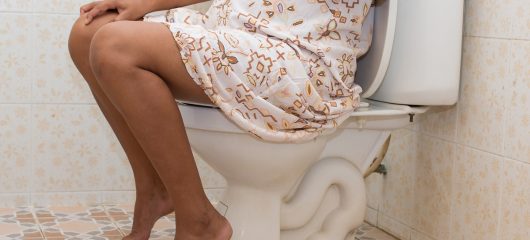
Diarrhea in children and infants
Diarrhea in children and infants
The appearance of diarrhea in children can contribute to harmful, uncontrolled loss of water and its electrolytes. They are responsible for a very fluid border of life processes in the body of every human being, especially for a small child.
Jak odwodnienie wpływa na nasz organizm?
If the child’s diarrhea is left untreated, severe dehydration may occur. This means that not enough water is fed into the cells and tissues. In this condition, there is a risk of cardiac disorders, uncontrolled drop in blood pressure, kidney failure, seizures, consciousness disorders or coma. A dehydrated organism often has problems with the proper functioning of the centers in the brain responsible for thermoregulation. Therefore, untreated diarrhea in children is often accompanied by high fever. Insufficient fluid replenishment can result in a very serious condition and ultimately leads to hospital treatment. Extreme dehydration can be life threatening.
When is diarrhea diagnosed in infants and children?
Basically diarrhea in an infant (newborn) or slightly older child occurs if artificially fed gives 3 or more loose stools within 24 hours or one – containing blood, mucus or pus. However, this “diagnosis” does not include infants who are exclusively breastfed because they usually give out several stools per day (usually after each feeding). Diarrhea in babies and children of this group is diagnosed when the frequency of stooling suddenly increases or their character changes significantly, e.g. water content or mucus appears.
What is most important in the treatment of diarrhea?
The most important in combating these ailments is fast and efficient irrigation. It is recommended that the child get fluids before visiting the doctor.
This allows you to reduce the risk of dehydration, and thus the appearance of its dangerous effects. Often, timely fluid supplementation protects children from hospitalization. What should you give in this case during diarrhea? Visible diarrhea requires the child to be given specially formulated Oral Rehydration Solutions (ORS). It is their composition that determines the effectiveness of the first intervention.
ORS contain very carefully selected amounts of glucose, electrolytes and osmolarity. Diarrhea in a newborn baby and an older child (two-year-old) cannot be treated with fruit juices, broth or coca-cola drinks, because the ingredients they contain can lead to worsening of symptoms and make treatment difficult. If your child does not want to take ORS, contact a pediatrician.
How to feed a child during diarrhea?
You do not need to change your current diet during diarrhea. An infant who has been breastfed up to now can continue to be fed in the same way.It should be remembered first of all about supporting the daily menu with ORS preparations: in infants fed with formula after 3-4 hours of (oral) irrigation, it is recommended to return to the mixture used before diarrhea, in older children and adults after a 3-4 hour hydration period of ORS go back to eating normally.It is necessary to use supplementary oral irrigation until the diarrhea disappears.
The quicker you give your child an oral rehydration solution, the more you will reduce the risk of dehydration and the child’s stay in the hospital.
How to deal with diarrhea:
- Apply rehydration solution as soon as possible (within the first 3-4 hours).
- Introduction of an age-appropriate diet only after hydration.
- Continue the irrigation process by using irrigation fluids after each diarrheal stool.
- Restoration of the proper bacterial flora of the digestive system by taking safe (checked) probiotics.
Kinga Kowalska-Duplaga, MD, Department of Pediatrics, Gastroenterology and Nutrition in Kraków-Prokocim






